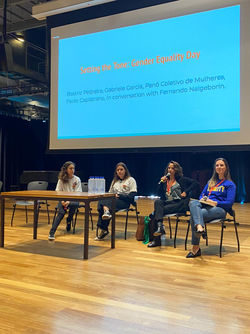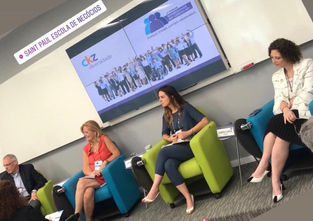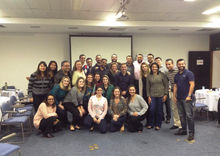Services
Education and Consultancy
The Institute works on two pillars: Education and Consultancy.
We develop and conduct studies, strategic plans, and educational activities that allow an understanding of the organizational structure and the identification of possible tools for improving practices in the field of promoting the Peace Culture and Human Rights.

Education

In Education, we implement curriculums and training programs from a global and multidisciplinary perspective, intending to regenerate behaviours and relationships that hinder the full development of people
and organizations. Among the activities usually considered are:
-
Corporate workshops and lectures;
-
Training of teachers from educational institutions;
-
Training of public servers;
-
Training of community leaders and third sector professionals.
Consultancy
In Consultancy, among the activities usually considered are:
-
Independent diagnosis of the employees' perception of the topic and the impact on management and corporate governance practices;
-
Suggest projects to adapt or deepen practices in line with national and international guidelines on human rights and social development;
-
Advisory on the elaboration of new authentic and independent projects related to the organization's business;
-
Curatorship of ideas and experts who can assist in the maturation of the organizational culture related to the theme of human rights and social development.

What are Human Rights?
What is Peace Culture?
What is Peace Culture?
It means facing structural conditions of oppression, exploitation and inequality, promoting and sustaining behaviours, and relationships based on non-violence, cooperation, inclusion, and reconciliation.
What are Human Rights?
What are Human Rights?
They are non-negotiable rights for all and anyone, whose purpose is to guarantee and defend dignity, identity, freedom, and the possibilities to prosper with conscience and responsibility.
What is Peace Culture?
It is the recognition of individual responsibility to engage critically in self-review and to assume a vigilant and proactive posture capable of contributing to social transformation structurally.
What is Peace Culture?

Public

Educational Institutions
Teachers, employees, and students from schools and universities – public and private.

Companies
Leaders, employees, and members of thematic committees (Diversity & Inclusion, Women, Race, Corporate Social Responsibility).

Government
Public leaders and servers from judicial, legislative, and executive.

We worked with













































